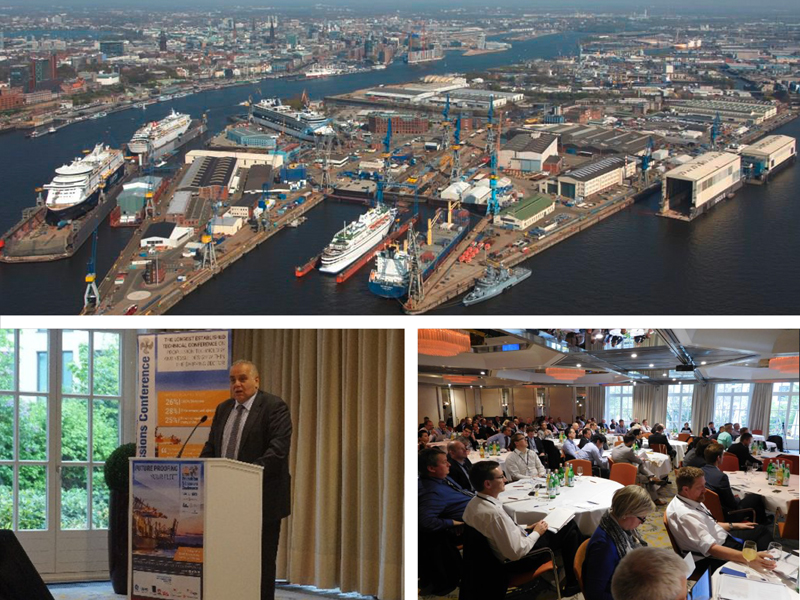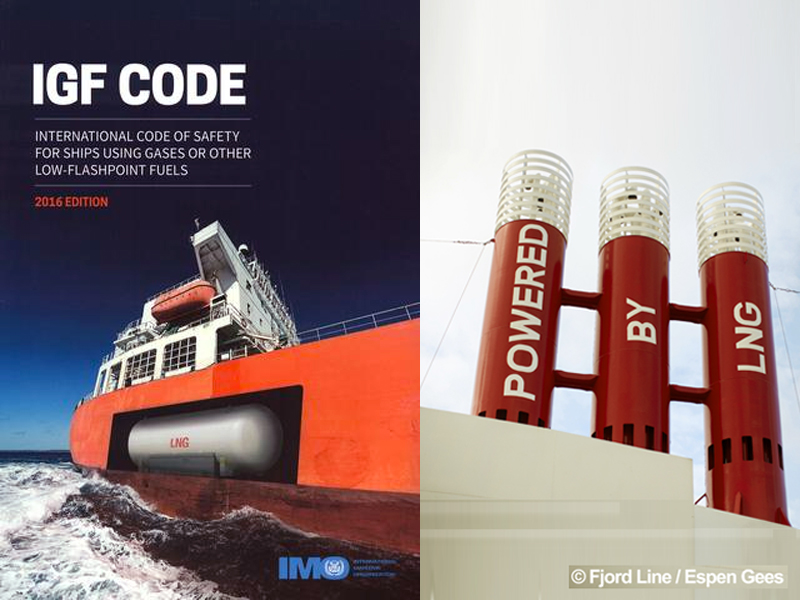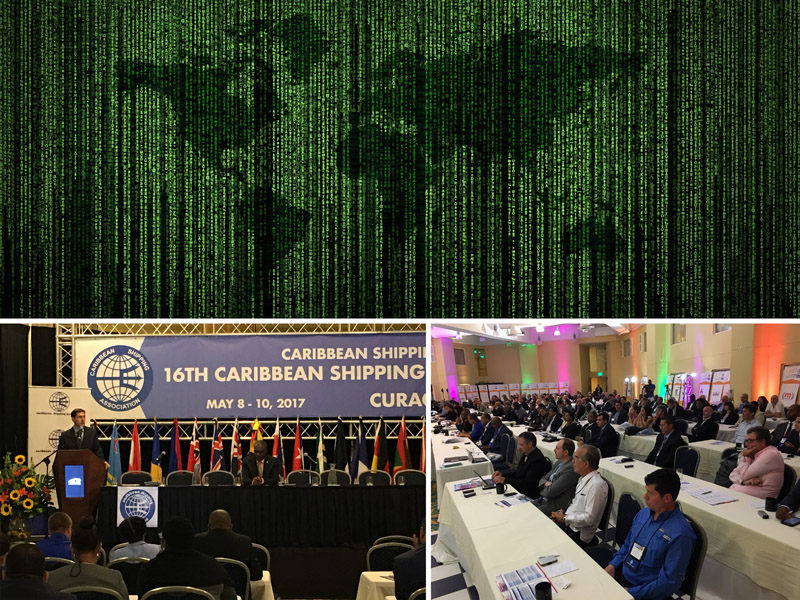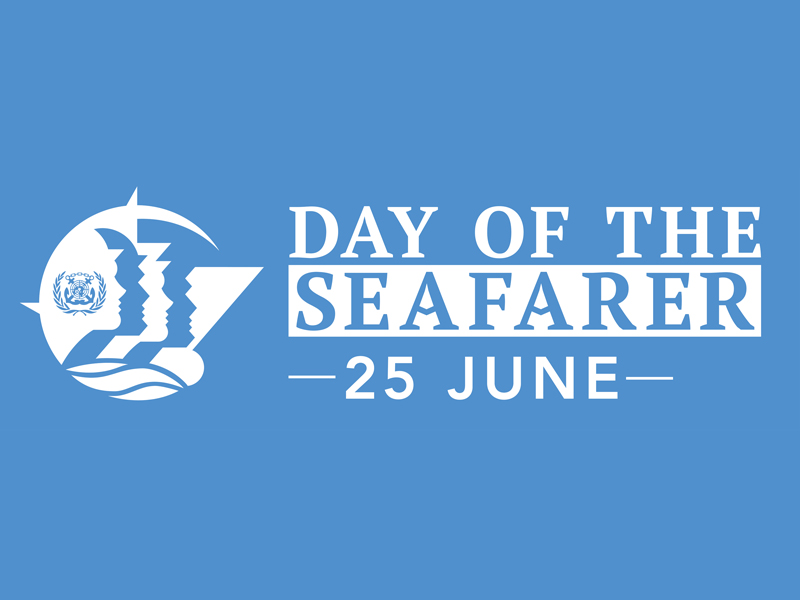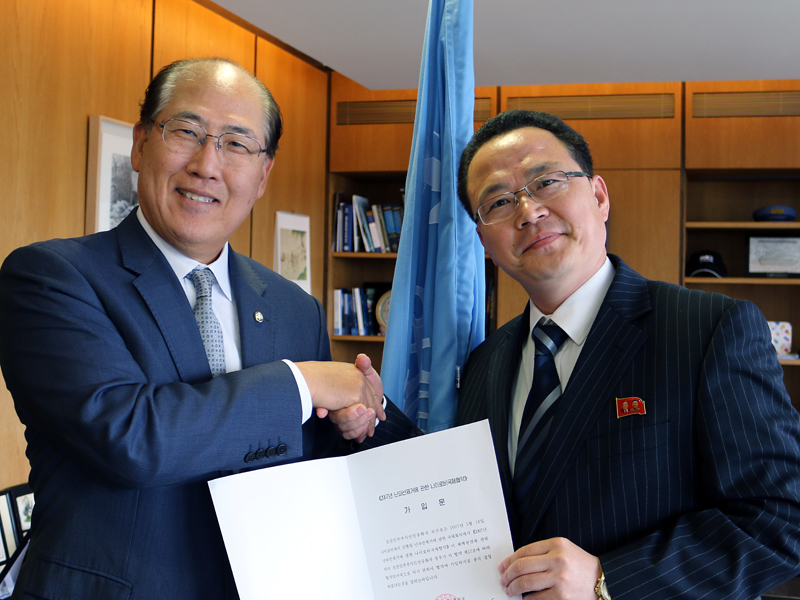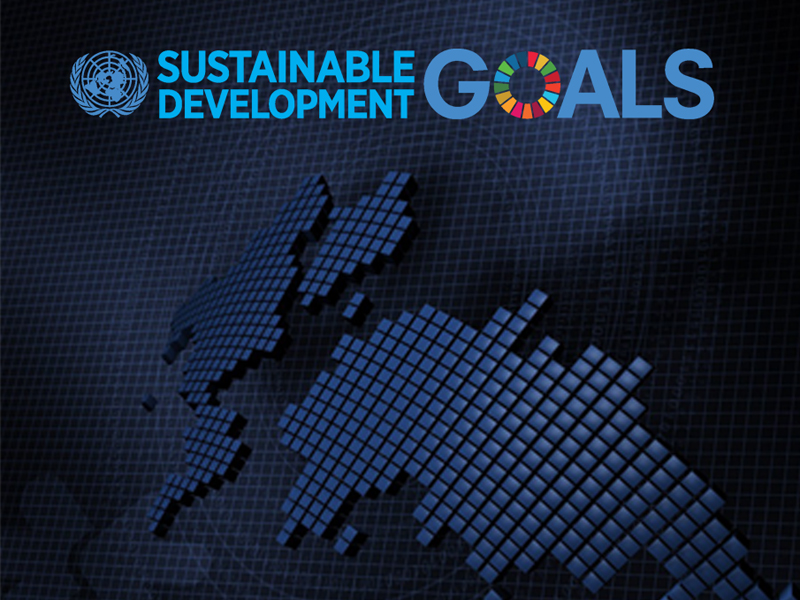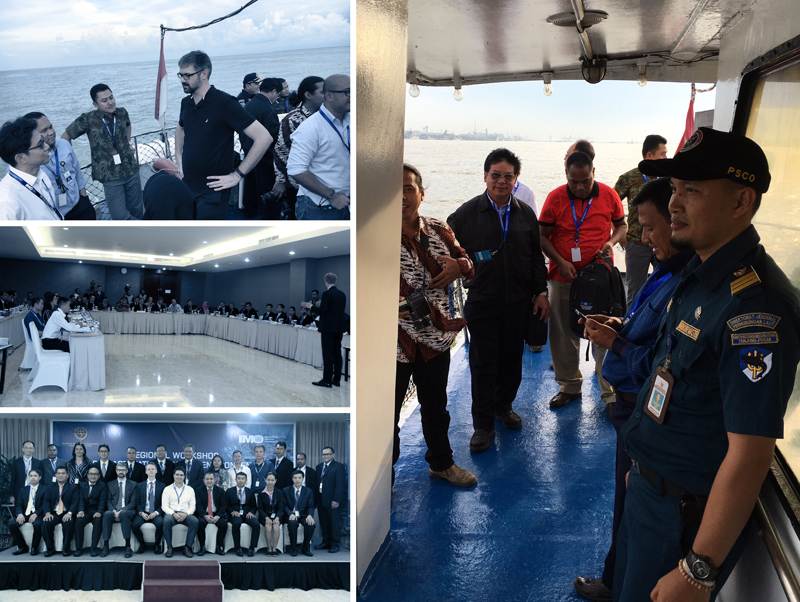Whats New 2017
IMO catalyst for more efficient ships
"IMO regulations will be a driver and catalyst for a
generation of new, more efficient ships" said Stefan Micallef, Director of
the Marine Environment Division at IMO, as he concluded his remarks at the 2017 Propulsion and Emissions conference, Hamburg, Germany (10-11 May). The ‘Future
proofing your fleet’ event discussed challenging issues of complying with
environmental regulations and the associated costs. In his keynote address, Mr.
Micallef also touched upon key IMO issues such as CO2 emissions reduction
policies, noting the successful introduction of the EEDI, which is forecast to
cut CO2 emissions by 1.3 gigatonnes, or 3.6% of total global emissions, by
2050. more...
Safely using natural gas as marine fuel
The safe use of natural gas as marine fuel was in focus at the International Conference on Liquefied Natural Gas for Transport and Industry in Naples, Italy (10-11 May). IMO’s Loukas Kontogiannis gave an update on IMO regulations on the subject, specifically, the International Code of Safety for Ships using Gases or other Low-flashpoint Fuels (IGF Code), which entered into force on 1 January 2017. more...
IMO at World Port Conference
“The benefits of a free and efficient flow of
goods and trade extend far beyond ships and ports and can improve the lives of
people everywhere.” This was IMO Secretary-General Kitack Lim’s message to the 30th
IAPH World Ports Conference in Bali, Indonesia (7-12 May). Mr. Lim was speaking
via video message to more
than 1000 delegates attending the Conference under the theme “Enabling Trade,
Energizing the World”. more...
Addressing the future
IMO Secretary-General Lim was in attendance as UN
Secretary-General António Guterres addressed the future of international cooperation
to an audience of students, diplomats and the general public at Westminster
Central Hall, London (10 May). Climate change, terrorism, human rights, UN
system reform and technological advances were some of the subjects taken on at
the UNA-UK event (photos). more...
Promoting cyber risk management in Caribbean shipping
All stakeholders should use existing safety and security management practices to implement the maritime cyber risk management recommendations agreed by IMO. This was a key message from IMO’s Javier Yasnikouski, Head of Maritime Security, IMO, presented the latest developments on maritime security at the 16th Caribbean Shipping Executives Conference, Curaçao (8-9 May). more...
Seafarers Matter
In less than two months, the Day of the Seafarer 2017 will be celebrated across the globe with a special focus on ports and seafarer centres. Under this year’s theme Seafarers Matter, the campaign aims to engage the people working in ports and seafarer centres to demonstrate how much seafarers matter to them.
IMO is also launching a new Day of the Seafarer logo. The Day of the Seafarer logo seeks to celebrate those people working in the industry, making it clear that seafaring is inclusive and a career at sea is suitable for both men and women. more...
Wreck removal treaty ratified by Democratic People’s Republic of Korea
IMO’s Nairobi International Convention
on the Removal of Wrecks has been ratified by the Democratic People’s Republic
of Korea, bringing the total number of States to accede to the treaty to 35.
The Convention, which entered into force in 2015, provides the legal basis for
States to remove, or have removed, shipwrecks that may threaten the safety of
lives, goods and property at sea, as well as the marine environment. more...
Harnessing digital technology – for good
Information and communication technology (ICT) are seen
within the UN system as vital to help deliver the Sustainable Development Goals
and monitor progress towards them. The bodies that deal with these issues across the UN system*
have met (2-4 May) to discuss progress on their so-called Digital
Transformation Agenda. Among topics on the agenda were data-driven decision
making, predictive analysis, cyber security issues and partnership with the
private sector. It was agreed to establish a task force for each of the key
areas identified at the meetings. more...
Preparing for ballast water management implementation
Identifying organisms and microbes in ballast water, as well as monitoring port marine life where ballast water may be released, are key for countries preparing to enforce IMO’s Ballast Water Management Convention. The treaty will enter into force on 8 September 2017 and aims to counter the threat to marine ecosystems by potentially invasive species transported in ships' ballast water. A regional workshop in Surabaya, Indonesia (2-5 May) is providing participants from 10 countries* with theoretical and practical training in compliance, monitoring and enforcement of the Convention. The workshop is also addressing port biological baseline surveys and risk assessment. more...
